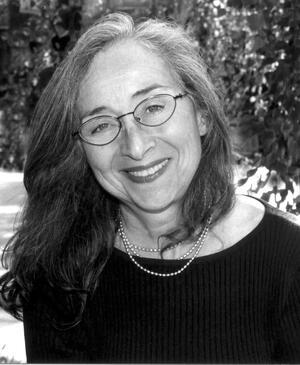Marcia Falk
The first time I presented my own blessings in public, I was daunted, and I might never have taken that step at all if not for something that happened in the summer of 1983, when I was teaching at the National Havurah Institute in Princeton, New Jersey. On Friday afternoon, my friend Arthur Waskow asked me to help him prepare the havdalah ritual, the brief but dramatic ceremony that closes the Sabbath. Art would be leading the recitation of the havdalah’s four blessings, and he wondered whether I would compose and read some introductory meditations. It was a moment of truth: I told Art what I had not yet told anyone – what I had not yet fully admitted even to myself – that I no longer prayed with the traditional liturgy. Hesitating at first, I explained how the words of those blessings stuck in my throat, how I could no longer pretend to worship God as lord and king.
"Fine," said Art, without skipping a beat, "so write your own blessings – we’ll use those instead."
"My own blessings? Are you out of your mind? They'll stone me!"
Art looked down at me – he’s a good-sized man – with a half-puzzled, half-exasperated expression. "Marcia," he sighed, "they won't stone you." I wondered at that moment whether Art had ever experienced the kind of intimidation that sometimes prevented me – and lots of other women, despite all the changes of the 1970s – from doing things my own way, convention be damned. But with him towering over me – daring me, so it seemed – I didn't have the heart to say no. Instead I took a deep breath, and agreed.
The next night, in a darkened hall lit only by the multi-wicked candle of the havdalah ritual, I recited four new blessings, in Hebrew and in English, before a community of 300 Jews of almost every religious persuasion, from atheist to modern Orthodox. I recited these blessings as though they had been written a couple of millennia ago by the rabbis, rather than the day before, by me. I offered no apology or explanation (I didn't dare to), and, to my puzzlement and disbelief, the community said Amen.
Word got out, and the next summer Rabbi Laura Geller asked if I would give a presentation on prayer at the conference “Illuminating the Unwritten Scrolls: Women’s Spirituality and Jewish Tradition,” to take place in Los Angeles that November. I decided to create a new kiddush (a sanctification over wine) and to present it as part of a speech that would take the audience through the why and how of its creation. The talk, entitled “A Blessing for This Day,” received a standing ovation.
Some have said that the presentation of that speech marked the beginning of an era in which Jewish women – and also Jewish men – would begin writing prayers of their own. For the most part, however, the new prayers that began to be written were in English; I was alone in composing Hebrew blessings. And as these became known in wider circles, they stirred up considerable controversy: vigorous – even vehement – debates began happening over whether we have the “right” to change the words of Hebrew prayer. Believing that we have not only the right but the responsibility to keep alive the Hebrew liturgical tradition by adding our own voices to it, I continued over the course of the next decade to write new Hebrew blessings for both the home and the synagogue.
In 1996, my new prayer book, The Book of Blessings, was published, and since that time, passages from The Book of Blessings have been reprinted in the prayer books of every major non-Orthodox movement of Judaism. Apparently – and to no one’s surprise more than my own – new feminist prayer in Hebrew has started to become part of the Jewish mainstream.
Marcia Falk is a poet, translator, and liturgist, who has been a professor of literature and creative writing at SUNY Binghamton, the Claremont Colleges, and Hebrew Union College. She is the author of The Book of Blessings, a bilingual re-creation of Jewish prayer in poetic forms, written from a nonhierarchical, gender-inclusive perspective. Her translations include The Song of Songs: Love Lyrics from the Bible; With Teeth in the Earth: Selected Poems of Malka Heifetz Tussman (translated from the Yiddish); and The Spectacular Difference: Selected Poems of Zelda (translated from the Hebrew). She also has two books of her own poetry: This Year in Jerusalem and It Is July in Virginia. Falk lectures widely on Jewish feminism, women’s literature, and other topics. Her writings, programs, and paintings can be viewed at www.marciafalk.com.



